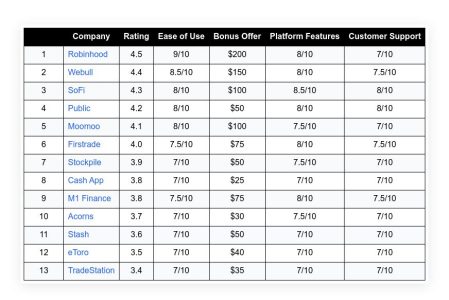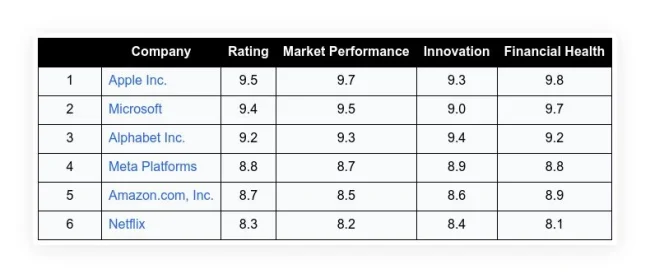When you’re in your 20s or 30s, it’s easy to think you have everything figured out. But here’s the hard truth: you don’t. Looking back as someone in their 40s, I can honestly say that life is full of lessons you’re not even aware you need. Along the way, I’ve made some mistakes, but I’ve also learned some valuable lessons.
Here are eleven uncomfortable truths you must face before it’s too late.
Table of Contents
Toggle1. Reduce the amount of financial friction in your marriage.
In relationships, money is one of the biggest sources of conflict. According to Fidelity Investments’ biennial Couples & Money Study, more than 45% admit privately to arguing with their significant other over finances, at least on occasion. One out of four people attribute the most significant challenge in their relationship to money.
Having separate accounts might seem logical if you’re married or considering marriage, but it can create unnecessary friction. A joint financial plan encourages transparency, sharing of goals, and regular communication about money.
While individual retirement accounts and FDIC limits are exceptions, pooling resources simplifies financial management and strengthens partnerships for most people.
2. Take ownership of your choices.

Every decision has consequences. When you make good choices, you will have good outcomes, and if you make bad choices — well, you know what happens.
You won’t get anywhere by blaming others for your situation. The adage goes, “When you point one finger, three fingers are pointing back to you.”
It doesn’t matter who you point the finger at, whether it’s your parents, your boss, or even the government. You should accept responsibility for your past and focus on improving your decision-making in the future.
3. Put down your phone.
Depending on your use, your smartphone may be your best friend and your worst enemy. You can waste a lot of time scrolling endlessly through Instagram, TikTok, or YouTube. A hard look at your screen time might reveal whether you have the time to exercise, start a side hustle, or learn a new skill.
Remember, you’ve got time; you’re just not prioritizing it.
4. Don’t compare yourself to others.
I must remind myself that 20 years ago, phones and social media weren’t as prevalent. Among adults aged 25-34 in the United States, 140 minutes are spent on social media every day.
Because of this, it will be difficult for you not to compare your life with others in this world filled with social media. You will probably see people who seem happier and more fortunate than you. Maybe it’s because they make a lot of money, have a loving partner, attend festivals, and travel the world.
The thing is, life isn’t a competition. Your life was meant to make you happy. Remember, despite what you might think, nobody’s life is as perfect as their Instagram feed.
5. You won’t get rich by being frugal.
It’s a great habit to cut costs and save money, but it has limits. After all, there is only so much money you can save.
A person’s true wealth comes from increasing their income. No matter what you do, you should focus on earning more, not just saving money. This can be done by working extra hours, starting a side business, or finding a higher-paying job.
6. Eliminate toxic people from your life.
The problem here is that toxic people are often those closest to us — friends, family, and coworkers. However, whenever someone’s influence pulls you away from your goals or values, it’s time to reevaluate your relationship.
It doesn’t have to be an immediate cutoff with these toxic people. It is important, though, to set boundaries and prioritize your well-being.
7. Make sure you value your time.
Your time is your most valuable asset. Unlike money, you cannot earn more of it. As such, keeping track of how you spend your time and eliminating unproductive activities can help you live a more meaningful life.
Rather than excessive Netflix binges or mindless scrolling, redirect that time toward activities that align with your goals.
8. Take advantage of online business opportunities.
As a result of the digital age, wealth can be created in an endless number of ways. There’s an online business model for everyone, whether it’s starting a YouTube channel, launching an Instagram brand, or creating an e-commerce store.
Keep in mind that success doesn’t happen overnight. The rewards, however, can be life-changing if you work consistently and diligently. You only have to look at creators who have turned their hobbies into six-figure incomes by sharing their journeys on social media.
9. Schedule intentional family time.

You can easily let family time slip through the cracks when you are building a career or business. The thing is, there is no substitute for those moments spent with your loved ones.
So, make time to create memories with your family and spend quality time with them. At the same time, being present doesn’t just mean being present. It’s all about maximizing those moments.
10. Develop high-income skills.
One of the best decisions you’ll ever make is to invest in yourself. High-income skills like digital marketing, copywriting, and SEO can provide unimagined opportunities.
These skills enhance earning potential and give you the tools to adapt to and thrive in a rapidly changing world.
11. Learn to navigate uncertainty.
As I alluded to at the beginning of this post, being in your 20s and 30s can feel like a whirlwind of uncertainty. As Leo Babauta states, thinking about your life purpose, career path, and identity can be overwhelming. Even the most successful people experience doubt, even though they seem to have it all together.
According to him, uncertainty fuels procrastination, jealousy, anxiety, and self-doubt. Whenever we face uncertainty, we seek distractions to avoid discomfort.
To succeed, Leo says we must learn to embrace uncertainty.
- Acknowledge it. Understand that uncertainty is a normal part of life.
- Notice it. Identify what is causing you to feel uncertain so you can resolve it.
- Stay with it. Be strong in the face of discomfort. When uncertainty arises, learn to be present with it.
- Focus on the present moment. Don’t dwell on the future, but find joy in the present. Take note of your surroundings and the energy around you.
Uncertainty is an inevitable part of life. By acknowledging, embracing, and focusing on the present moment, you can learn to navigate the unknown and find peace.
Final Thoughts
It may be uncomfortable to embrace these eleven truths, but they can set you up for long-term success and fulfillment. Don’t wait until you’re in your 40s to realize what could have been done differently. Put yourself in control now, and make your life awesome. Don’t forget that it’s your money and your life, and only you can make it great.
FAQs
What is the point of realizing life isn’t fair?
In life, things aren’t always fair. No matter how hard you try, you won’t always get what you think you deserve, no matter how perfect the circumstances may be.
Understanding this early on will make you resilient and develop a strong work ethic. You’ll also be able to handle challenges and setbacks without feeling entitled or defeated. As a result, it fosters empathy for those who may face similar challenges.
Why is it important to acknowledge our mistakes?
We all make mistakes at some point, no matter how successful or inexperienced we are. Acknowledging this can help us reduce our fear of failure and embrace the learning process. Learning from mistakes is a valuable opportunity for self-improvement and growth.
Why is mental health so crucial?
Mental well-being affects all aspects of life. Therefore, it should be prioritized for overall success and happiness.
Self-care, healthy relationships, seeking professional help when needed, and developing coping mechanisms will help you care for your mental health.
What are the benefits of learning about money?
Knowing how to budget, save, invest, and manage your debt will help you achieve financial stability and independence.
Books, online resources, workshops, and financial advisers can all help improve your financial literacy.
Why are strong relationships important?
In addition to providing support and love, they also provide companionship.
Communication, active listening, respect, empathy, and compromise are all essential to building and maintaining healthy relationships.
Image Credit: RDNE Stock project; Pexels
















